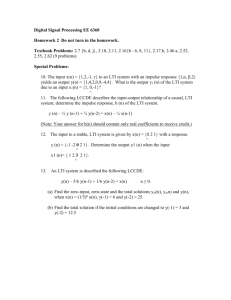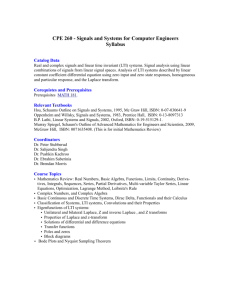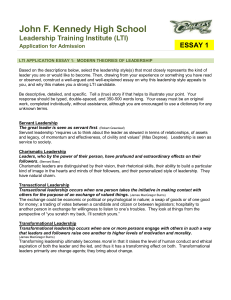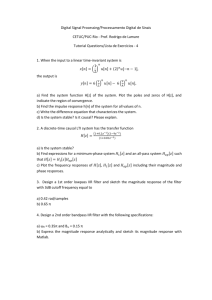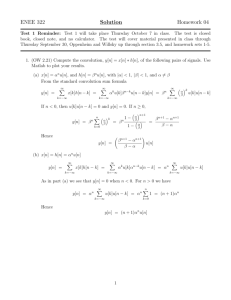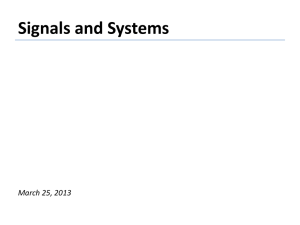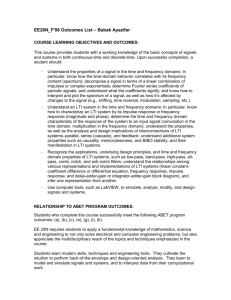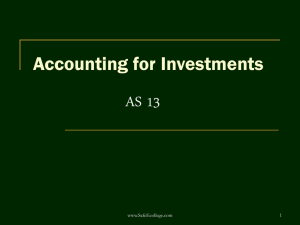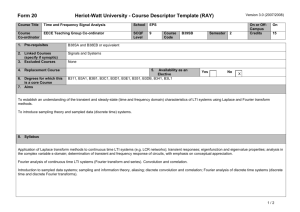Basic Consulting Skills - University of Michigan
advertisement
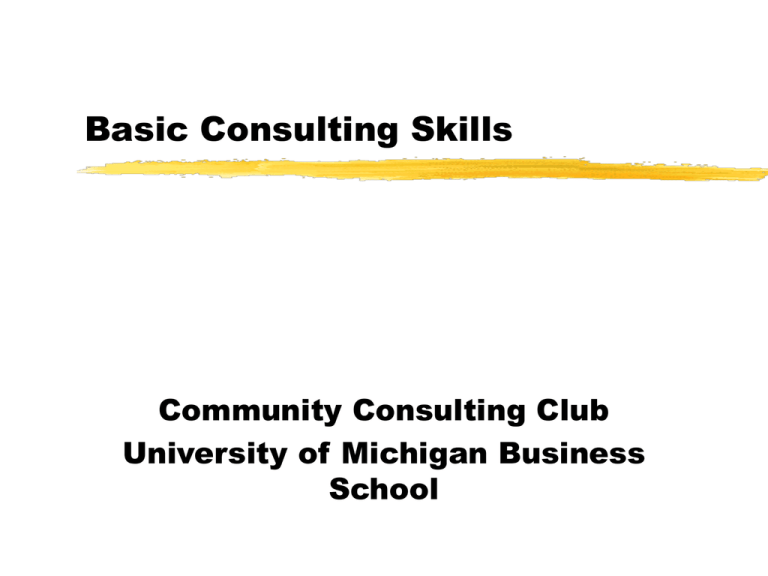
Basic Consulting Skills Community Consulting Club University of Michigan Business School C O M M U N I T Y Agenda C O N S U LTI N G Pegging the Scope Down Analyzing the Issues Developing a Work Plan Working in a Consulting Team Q&A 2 C O M M U N I T Y Agenda C O N S U LTI N G Pegging the Scope Down Analyzing the Issues Developing a Work Plan Working in a Consulting Team 3 C O M M U N I T Y Pegging the Scope Down C O N S U LTI N G Understand what the problem actually is Meet early with client to sort this out Develop a statement of the problem A question or a clear hypothesis As specific as possible Focused on action Draft the engagement letter 4 C O M M U N I T Y Pegging the Scope Down Fact C O N S U LTI N G • The Red Cross does not know what its educational courses are costing • What costing systems can the Red Cross put in place to Too General find cost of courses? • Build a simple and quick system that the Red Cross can Specific, put in place in order to better price its courses and Focused on manage its course mix Action 5 C O M M U N I T Y Pegging the Scope Down C O N S U LTI N G Define Problem Space Context (Situation): Why is this an issue at this time? Are there other issues bearing on the problem? Constraints (Complication): What is not in the scope? What solutions are not acceptable? Who exactly is the Client? To whom will we make the presentation? Who will take the decision? Define Deliverables (Resolution) 6 C O M M U N I T Y Pegging the Scope Down C O N S U LTI N G The engagement letter • If you defined the problem, the problem space and the deliverables, there’s little else to do • Clearly define expectations from both sides • Signed by team and client: a statement of commitment from both sides • There’s no ‘right’ way to do this 7 C O M M U N I T Y Engagement Letter C O N S U LTI N G Heading Description Impact/benefit of the project to the client In 1 paragraph, define your assessment of the current situation at your client, key issues the team is going to address, and the benefit of resolving the issues Work plan/approach to the project Describe in 1 page what activities the team will undertake over the duration of the project. Identify the need for customer or supplier interviews/surveys as early as possible Prerequisites for successful project Define what resources you will need from the client, and specify the time per week you will require from them. If possible, describe the role each individual will play on your team 8 C O M M U N I T Y Agenda C O N S U LTI N G Pegging the Scope Down Analyzing the Issues Developing a Work Plan Creating a Good Presentation Wisdom of the Ancients 9 C O M M U N I T Y Analyzing the Issues C O N S U LTI N G There is no ‘right’ way to do this. Different consulting firms have different approaches. Use what works. Brainstorm and build an “issue tree” Ensure it is MECE Mutually Exclusive and Collectively Exhaustive 10 C O M M U N I T Y Analyzing the Issues C O N S U LTI N G Issue Tree Example How can the Art Center increase revenues? Change pricing? Change nature of collection? Increase attendance at given pricing level? Explore alternate marketing channels to broaden audience Explore alternate revenue streams? Sub-idea 3 11 C O M M U N I T Y Analyzing the Issues C O N S U LTI N G Prioritize and focus on issues based on impact, team interests, ease of analysis How can the Art Center increase revenues? Change pricing? Change nature of collection? Increase attendance at given pricing level? Explore alternate marketing channels to broaden audience Explore alternate revenue streams? Sub-idea 3 12 C O M M U N I T Y Analyzing the Issues C O N S U LTI N G Why bother with the darn tree? Helps divide project Road map for analysis and data collection Ensures completeness (prevents blindsiding) (It will also help you with case interviews) 13 C O M M U N I T Y Agenda C O N S U LTI N G Pegging the Scope Down Analyzing the Issues Developing a Work Plan Creating a Good Presentation Working in a Consulting Team 14 C O M M U N I T Y Developing a Work Plan C O N S U LTI N G Identify key issues from analysis What is our initial hypothesis for a solution? What analysis do we need to perform to test the hypothesis? What data is available? What data is required? How can we fill the data gaps? What are the end products for each analysis? Who will do each task? By when? Check work plan weekly 15 C O M M U N I T Y Developing a Work Plan C O N S U LTI N G General Advice Be end product driven, think also about slide output Ask “So What?” Be data driven: all opinions are equal Focus on what is achievable Don’t try to boil the ocean 16 C O M M U N I T Y Planning Critical Analyses Principles C O N S U LTI N G Comments End-product driven Hypothesize the answer(s) and plan the quickest path to robustly “prove” or disprove it Continually question the hypotheses Re-evaluate hypotheses every day and adjust work plan – regularly check ideas with client Look for 80/20, “killer analyses” Avoid trying to boil the ocean– which analyses will nail the answer/ provide the most insight? Be realistic about end product precision limits Scrutinize precision of input data– beware of “polishing dirt” 17 C O M M U N I T Y Story-board the Product MAIN MESSAGES PROJECTED FINANCIALS EBITDA C O N S U LTI N G COST SAVINGS ANALYSIS • Save $x million through China move • Hold price while monitoring competitive SGA FOH VOH Labor conduct • Conduct lean transformation -x% Material 2005 PRICING STRATEGY: ROIC ISOQUANT PerformConduct ance Structure 2004 Customers _____ _____ _____ OEMs _____ _____ _____ Suppliers _____ _____ _____ SUPPLIER SELECTION Price Today Competitor variable cost Market share PRODUCTION RAMP-UP SCHEDULE Suppliers Criteria _____ _____ _____ _____ 1 GAME THEORY VS. COMPETITOR X EBITDA payouts Year 1 Year 2 Drop Hold Them Us Drop Hold INDUSTRY TREND SCENARIOS 2003 Us Drop Hold 2002 Drop Hold Them IMPLEMENTATION PLAN May June July … 2 3 4 Product 1 2 3 4 Strong/weak ratings Recommended 2003 2004 2005 18 C O M M U N I T Y Agenda C O N S U LTI N G Pegging the Scope Down Analyzing the Issues Developing a Work Plan Working in a Consulting Team Q&A 19 C O M M U N I T Y High-functioning Teams C O N S U LTI N G Trust presume competence Flexible roles needs of project Clear ownership delegated responsibilities Know when to escalate delays, roadblocks 20 C O M M U N I T Y C O N S U LTI N G Agenda Q&A 21
